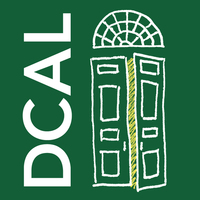- About
- Global Learning
- Research
- Partnerships & Programs
- Travel
- News & Events
Back to Top Nav
Back to Top Nav
Back to Top Nav
Back to Top Nav
In this interactive session, we will consider the notion of psychological trauma and how we, as educators, can help ameliorate students' mental health, exhaustion, and distress.

In this interactive session with Dr. Mays Imad, we will consider the notion of psychological trauma–why it happens and how it impacts the body and brain. We will examine the connections between stress and trauma and how stress can become traumatic when not acknowledged or managed. We will examine the neuroscience of traumatic stress and its impact on our ability to engage, connect, and learn. We will reflect on the questions of how we can welcome our students and colleagues to our institutions and classrooms this term and beyond. What can we, as educators, possibly do to help attend to students' mental health and ameliorate their exhaustion and distress, while at the same time, intentionally engaging in self-care? We will consider the imperative of self-care while caring for others. Last, we will examine the principles, notable misconceptions, and practical examples of trauma-informed care, and reflect on the connections between trauma-informed education, healing, and restorative justice.
While we hope you can attend this session fully from 9:00am-12:00pm, we recognize that this may not be possible for all participants. Please register for the event, even if you will need to come and go to accommodate your schedule.
An optional lunch will be available for participants to dine in DCAL or take to go following the session.
This event is being held in person. If you are sick, please do not attend. If you cannot attend in person due to illness or disability, please email us at dcal@dartmouth.edu to make alternate arrangements. While we cannot promise an equivalent remote experience, we are happy to accommodate. Thank you!
Register here: https://libcal.dartmouth.edu/event/9751341
Mays Imad is a Gardner Institute Fellow and an AAC&U Senior Fellow within the Office of Undergraduate STEM Education. Dr. Imad’s research focuses on stress, self-awareness, advocacy, and classroom community, and how these impact student learning and success. A nationally-recognized expert on trauma-informed teaching and learning, she passionately advocates for institutions to make mental health a top priority and to systematically support the education of the whole student. In addition to her work on trauma, emotional regulation, and mental health, she received funding from the National Science Foundation (NSF) for her work on critical thinking in STEM courses.
Dr. Imad is currently teaching in the biology department at Connecticut College. Outside of the classroom, Dr. Imad works with faculty members across disciplines at her own institution and across the country to promote inclusive, equitable, and contextual education–all rooted in the latest research on the neurobiology of learning. Through her teaching and research she seeks to provide her students with transformative opportunities that are grounded in the aesthetics of learning, truth-seeking, justice, and self-realization.
Events are free and open to the public unless otherwise noted.